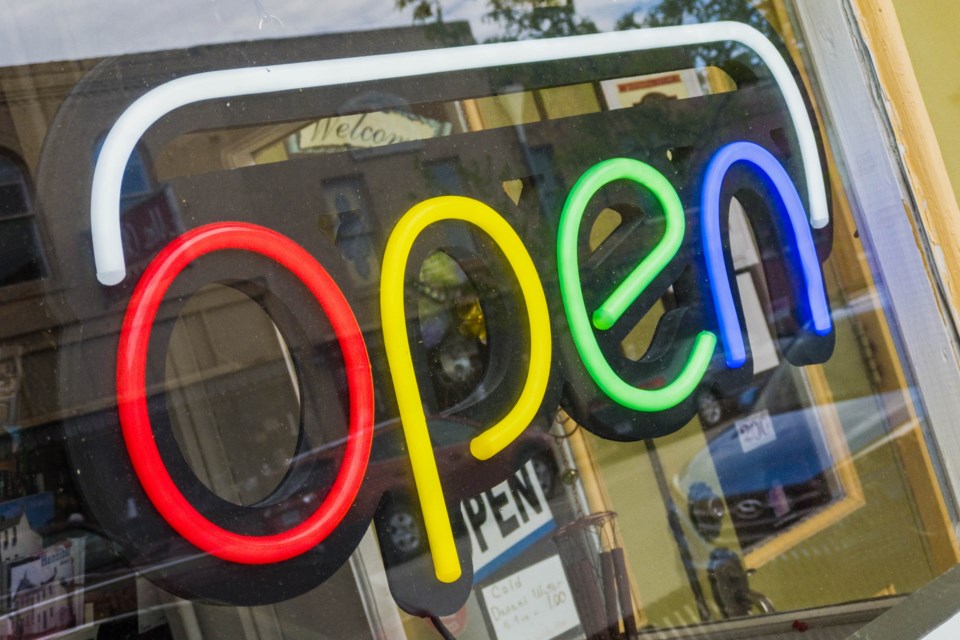SUNDRE - To help mitigate the economic impact of the COVID-19 pandemic, a regional hotline has been set up to support area businesses.
“The most important thing that we can do right now is working with businesses so that they maintain the confidence to maintain operations. We need to maintain that commercial confidence,” said Jon Allan, the Town of Sundre’s economic development officer. “We need to help them understand and that there is a light at the end of the tunnel and that we are there to support them in the process of navigating this tunnel.”
The municipalities of Carstairs, Clearwater County, Cremona, Didsbury, Mountain View County and Sundre deployed the hotline on April 1.
When callers phone 403-556-3130, they will be prompted to press extension 1 for Sundre; 2 for Carstairs, 3 for Didsbury, 4 for Cremona, 5 for Mountain View County and 6 for Clearwater County.
Each municipality is provided with their own extension that automatically forwards calls to their respective economic development official.
• RELATED: AREA COVID-19 BUSINESS IMPACT: Eyeing the future with ice cream, movies in Innisfail
• RELATED: LOCAL COVID-19 BUSINESS IMPACT: Sundre's Original T's, Cedar's Pub
“We wanted to create an easy button for businesses to simply pick up the phone, contact their community’s respective economic development official and get support understanding the plethora of provincial and federal programs that are out there,” said Allan.
He said many businesses that haven’t been mandated to close are operating on reduced hours because of reduced traffic, which in turn reduces revenue. And with reduced revenue, he said business owners are unable to afford the same wages that they would normally pay and hence, not be able to be open as long.
“So we are seeing a massive decline, an absolutely precipitous decline in revenue for small businesses,” Allan said.
By helping business owners access the available financial aid programs provided by the provincial and federal governments, he said they will be more likely to meet their immediate operational expenses and to survive the pandemic.
Allan said there are three top programs being discussed with business owners.
Canada Emergency Response Benefit
Allan called the Canada Emergency Response Benefit an “absolutely key program.”
It provides $500 per week for up to 16 weeks to people who have stopped working because of COVID-19 and have not voluntarily quit their job or are eligible for regular Employment Insurance or sickness benefits.
It is for those who are or expect to be without employment or self-employment income for at least 14 consecutive days in the initial four-week period.
For subsequent benefit periods, they expect to have no employment or self-employment income.
“So this has been a very important program for self-employed individuals who don’t otherwise qualify for EI and have no other means of making revenue,” he said “So the number one program to promote right now for employees, contractors, solo entrepreneurs is the Canada Emergency Response Benefit.
Canada Emergency Wage Subsidy
The new Canada Emergency Wage Subsidy (CEWS) provides a 75 per cent wage subsidy to eligible employers for up to 12 weeks, retroactive to March 15, 2020 up to a maximum benefit of $847 per week per employee.
Employers must have had revenue reductions of 15 per cent in March 2020 compared to March 2019 or a 15 per cent revenue reduction in March 2020 compared to the average of revenues in January and February 2020 to be eligible for the first claiming period. Eligibility for the second and third claiming periods requires a 30 per cent revenue reduction.
Eligible employers include individuals, taxable corporations, partnerships consisting of eligible employers, non‑profit organizations and registered charities.
Business Credit Availability Program
Not all businesses may qualify for either the wage subsidy or the emergency response benefit, said Allan.
“So those businesses that are established and that to make ends meet, will probably have to tap into credit that they can take advantage of which means they’re going to have to borrow money,” he said.
There are programs being deployed by the federal government in particular to help make credit easily available and with flexible terms.
The Business Credit Availability program is providing more than $65 billion in direct lending and other types of financial support at market rates to businesses with viable business models whose access to financing would otherwise be restricted.
It’s being administered and the credit is being lent through the Business Development Bank of Canada and Export Development Canada.
• COVID-19 UPDATE: Follow our COVID-19 special section and interactive map for the latest local and national news on the coronavirus pandemic, as well as resources, FAQs and more.
Under this program, the new Canada Emergency Business Account will provide interest-free loans of up to $40,000 to small businesses and not-for-profits to help cover their operating costs during a period where their revenues have been temporarily reduced.
Another element of the Business Credit Availability Program is a loan guarantee for small and medium sized enterprises in which Export Development Canada is working with financial institutions to issue new operating credit and cash flow term loans of up to $6.25 million.
“So this will also provide flexible payments, low interest unsecured loans and support high-risk businesses but the caveat is that they must merely have been viable prior to the crisis,” said Allan.
The Business Development Bank of Canada is also providing immediate cash loans through an online application option for non-BDC clients.
“Basically small business that have been in operation a minimum of two years and where the shareholder has a strong personal credit score can also apply for loans of up to $100,000,” he said.


